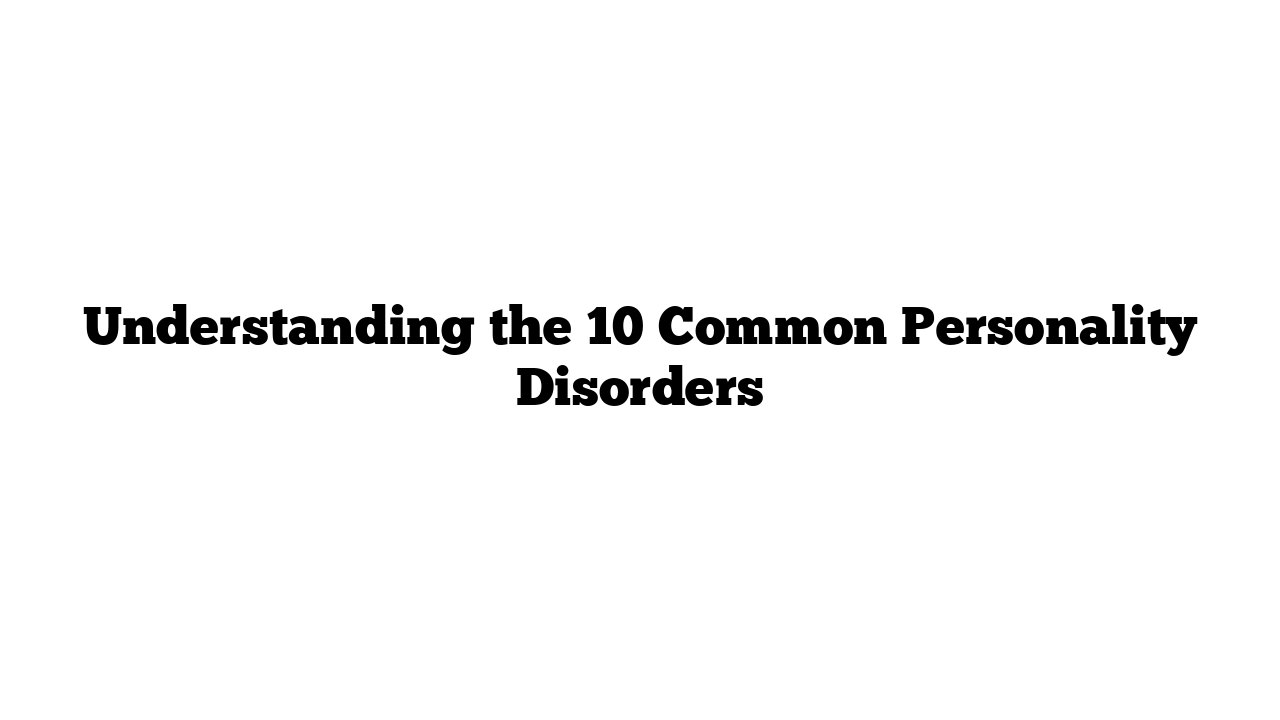Personality psychology offers valuable insights into what makes each of us unique while also highlighting our shared human experiences. While individual traits vary greatly, most people lead fairly ordinary lives. Unfortunately, this isn’t the case for everyone. Research indicates that approximately 9% of adults in the USA experience some form of personality disorder. These conditions can significantly impact a person’s ability to maintain relationships, find work, and enjoy life to the fullest.
What Are Personality Disorders?
The DSM-5, a key resource in mental health, defines a personality disorder as an enduring pattern of thoughts and behaviors that deviate markedly from cultural expectations. Some of these disorders lead individuals to act erratically or in unexpected ways. Interestingly, some believe that popular characters, like Willy Wonka or Winnie the Pooh, may exhibit traits of personality disorders.
While factors such as genetics and trauma can contribute to the development of personality disorders, every individual case is unique. Understanding and empathy are essential when dealing with someone who may be affected. Treatment for these disorders often involves various forms of therapy, which can be quite effective.
The Three Clusters of Personality Disorders
Psychologists categorize personality disorders into three distinct clusters: Odd, Dramatic, and Anxious. Each cluster exhibits different symptoms and behaviors that may be recognizable, not just in people you know but also in various iconic film and television characters.
Cluster A: Odd Behavior
- Paranoid Personality Disorder (PPD)
Individuals with PPD experience intense paranoia that isn’t grounded in reality. They may distrust others, believing that people are out to harm them. Leonardo DiCaprio’s character in “The Aviator” illustrates symptoms of this disorder as he becomes increasingly paranoid.Warning signs include:- A strong preference for solitude.
- Erratic thoughts.
- Hypersensitivity to criticism.
- Schizoid Personality Disorder (SPD)
Unlike schizophrenia, SPD doesn’t involve hallucinations. People with SPD often prefer solitude and lack emotional connections with others. They can function well in society but may not recognize their need for relationships. Many argue that Christian Grey from “50 Shades of Grey” displays characteristics of SPD. - Schizotypal Personality Disorder
This disorder includes eccentric beliefs and fantasies, often making it hard for others to relate. Willy Wonka, particularly in Gene Wilder’s portrayal, is frequently cited as a character with schizotypal traits, due to his imaginative and paranoid behavior.
Cluster B: Dramatic Behavior
- Antisocial Personality Disorder (ASPD)
Contrary to its name, ASPD describes individuals who disregard the rights of others, often engaging in manipulative or criminal behaviors. Christian Bale’s character in “American Psycho” exemplifies extreme antisocial traits. - Narcissistic Personality Disorder (NPD)
Narcissists are known for their lack of empathy and inflated self-importance. They may manipulate others to fulfill their needs. Figures like Ted Bundy and even Donald Trump have been speculated to display traits of NPD. - Histrionic Personality Disorder (HPD)
Individuals with HPD constantly seek attention and validation. Their behavior may appear charming, but it stems from deep-seated insecurities. Michael Scott from “The Office” is often viewed as a classic example of HPD. - Borderline Personality Disorder (BPD)
BPD is characterized by intense mood swings and unstable relationships. Characters like Clementine from “Eternal Sunshine of the Spotless Mind” display symptoms of this disorder, which often overlaps with bipolar disorder but primarily affects interpersonal relationships.
Cluster C: Anxious Behavior
- Avoidant Personality Disorder
Individuals with this disorder fear rejection and often withdraw from social situations. Elsa from “Frozen” displays avoidant tendencies due to her traumatic experiences. - Obsessive-Compulsive Personality Disorder (OCPD)
Different from OCD, OCPD involves a preoccupation with perfectionism and rigid rules. People with OCPD may struggle to complete tasks due to their need for order. Some analysts suggest that Hermione Granger from Harry Potter shows traits of OCPD. - Dependent Personality Disorder
Adults with this disorder may struggle with separation anxiety and rely heavily on others for decision-making. Cinderella is often used as an example, as she frequently seeks validation from others throughout her story.
Moving Forward with Understanding
Personality disorders should not be stigmatized. Many individuals, including well-known characters and real-life people, lead successful lives despite their challenges. However, untreated disorders can lead to harmful behaviors. If you recognize these symptoms in yourself or others, it might be time to consult a mental health professional.
Talk therapy is a highly effective treatment for personality disorders, and medication may also play a role in some cases. If you’re curious to learn more, visit medicaltimes.io for resources and insights.
For additional information on personality disorders and mental health, consider checking resources from the National Institute of Mental Health NIMH or Mental Health America MHA. Remember, understanding and compassion can go a long way in supporting those who may be affected.
